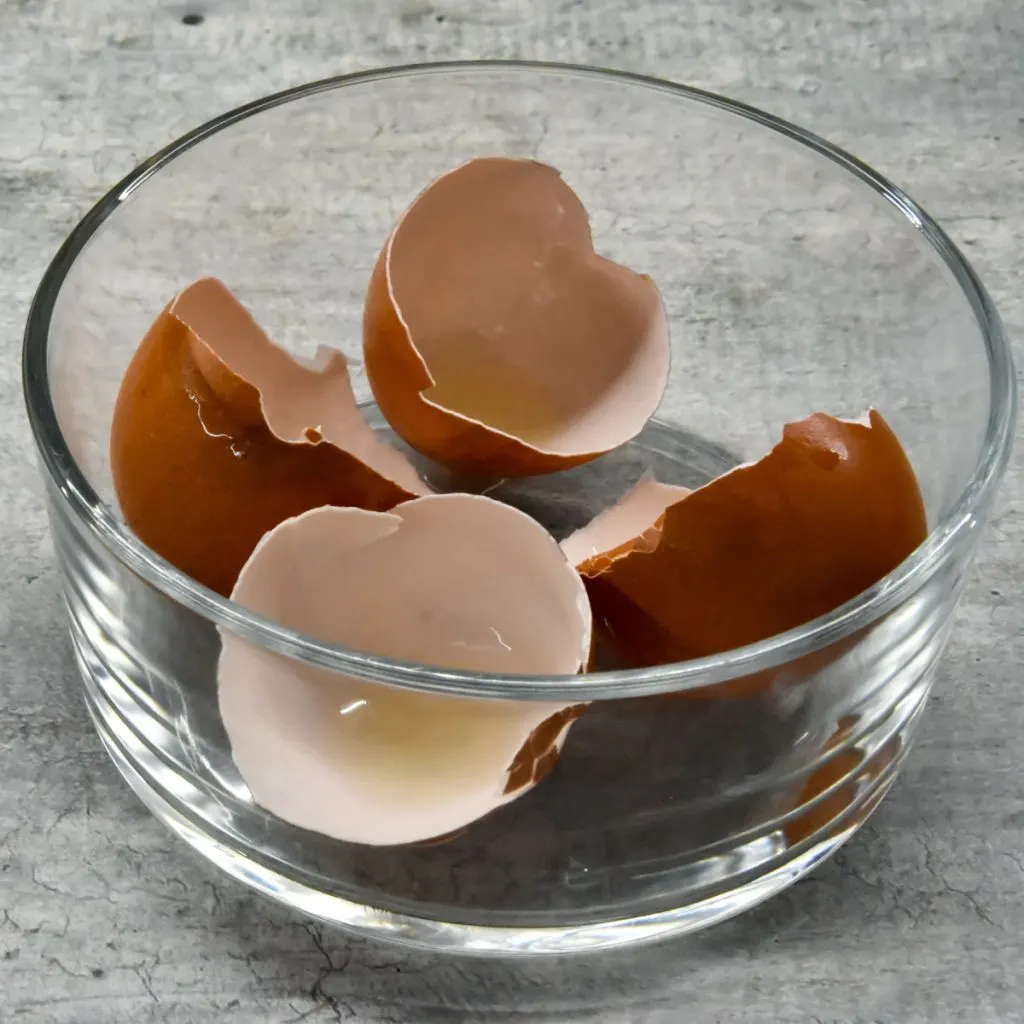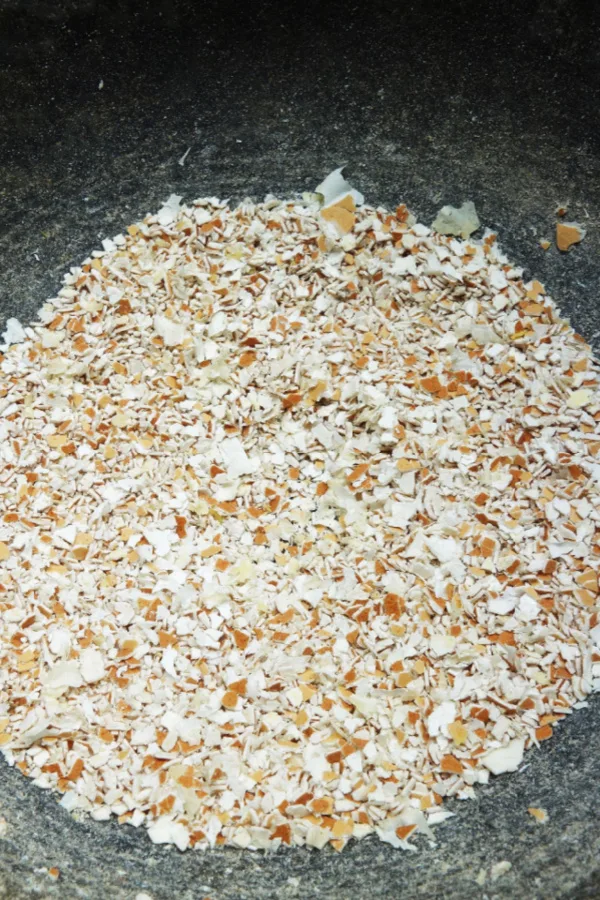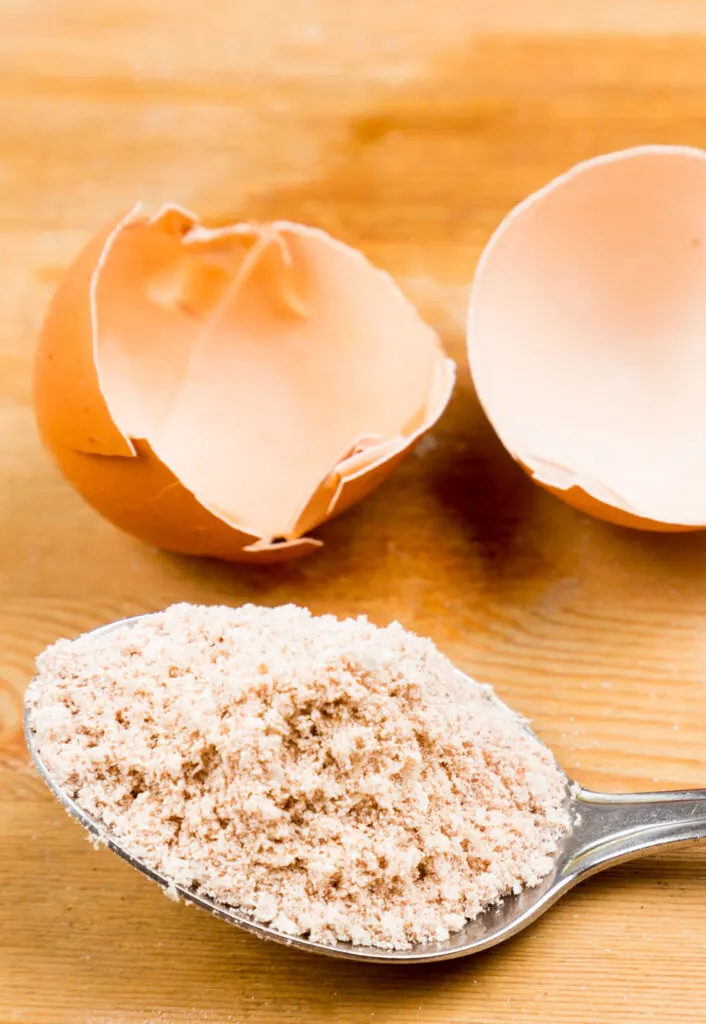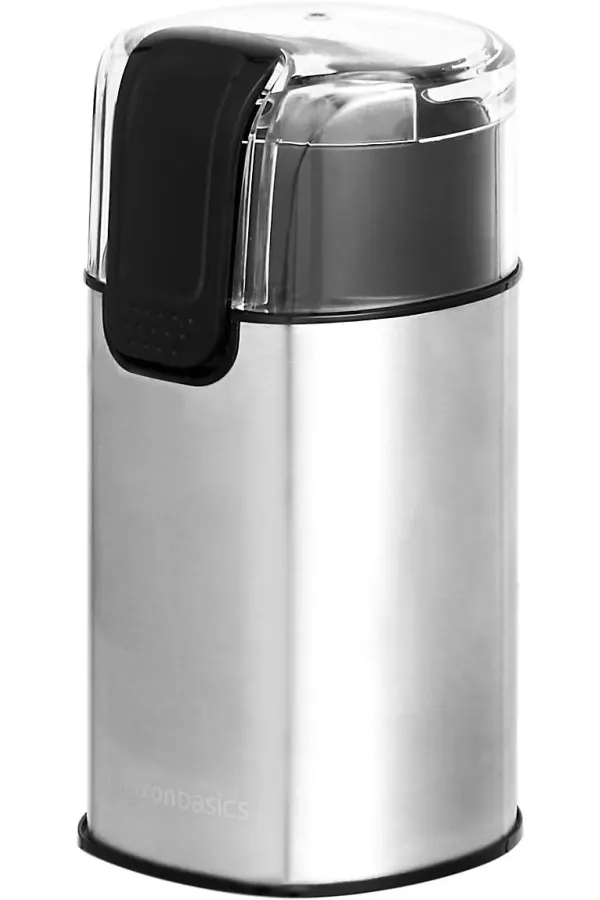Wondering how to easily and safely store and save egg shells this fall and winter to use in your garden and flowerbeds next spring?
Whether it’s placing crushed egg shells around the base of plants to help fend off slugs, using them as a soil amendment to help prevent blossom end rot on your tomatoes, or simply adding them to the soil to help energize and replenish lost nutrients, egg shells are truly a gardener’s best friend. To learn more about how to use them in your garden, check out our article: The Best Way To Use Egg Shells In Your Garden – And Why You Need To Save Them Now!
Egg shells are an incredibly powerful resource for gardeners. Loaded with calcium and a whole host of other trace minerals and nutrients, they are excellent for helping to power the soil and plants in your garden and flowerbeds. And all, of course, for free!

But if there is ever a problem with egg shells for gardeners, it’s finding a way to have enough of them on hand right when you need them. Unfortunately, all too often, the need for egg shells for your garden or flowerbeds arrives all at once.
A great example of this is during spring planting, where egg shells can help almost everywhere in your garden and flowerbeds.
The Many Uses Of Egg Shells In The Spring – The Best Way To Easily Save & Store Egg Shells
Looking to prevent blossom end rot on your tomato and pepper plants? Simply add four to six crushed egg shells into each planting hole. Want to help all of your vegetable and annual flower transplants develop strong stems and structure? Once again it’s egg shells to the rescue! See: How & Why To Plant Coffee Grounds & Egg Shells With Tomatoes!
But the use of egg shells during the spring planting season doesn’t stop there. Crushed shells are also great to mix in with your potting soil for healthier containers and hanging baskets. In addition, you can sprinkle shells on the soil around tender plants to ward off slugs.
As you can see, with all of those uses, it can require quite a stash of egg shells to do the job! But that is exactly where saving them up through the fall and winter can come to the rescue. By simply saving your egg shells in the off season, you can always be sure to have plenty on hand whenever you need them in the spring.

Not only is it easy, it doesn’t need to require a lot of space or time either. Especially when you use a simple trick that makes storing them safe and ready to use at a moment’s notice!
The Best Way To Save & Store Egg Shells In The Winter For Next Year’s Garden!
Grinding And Storing Egg Shells
So what is the simple secret? When it comes to storing egg shells, it’s all about grinding them up and storing them frozen!
Grinding or crushing egg shells down to a fine powder has more benefits than simply allowing for better storage. When it comes to using egg shells in your garden and flowers, the finer the egg shells are ground, the more quickly they will benefit your plants.
Whole or large egg shell pieces can take a long time to break down. Until they do, they can’t provide much in the way of nutrients to your soil or plants. But when you crush eggs shells into a fine grind, the powder-like substance is able to release its nutrients into the soil much more rapidly.
Listen In Below To Our Podcast On How To Use Egg Shells & Coffee Grounds!
This is exactly why you want to always add finely ground egg shells and not large egg shell fragments to your planting holes in the spring. This way, the calcium and other trace minerals can help your plants almost immediately.
In fact, other than using a few slightly broken shells around plants to protect them from cutworms and slugs, the majority of the time you will be using egg shells, it is best to have them finely ground. So why not store them that way from the start?
It’s fast, easy, and best of all, allows you to compactly store them in your freezer. Even better, you can store them safely, with no worries of mold, bacteria or foul odors!
Pulverizing & Freezing Egg Shells – The Best Way To Save & Store Egg Shells
Two of the biggest issues with storing egg shells are safety and storage space. Especially if you are trying to store egg shells all winter long. When left out, egg shells can create a bit of a foul odor from the leftover egg remnants inside the shell.
If the smell wasn’t bad enough, they can also grow bacteria and mold. And then there is the issue of where to store all of the shells until you need them. But by simply grinding them up and plopping them into a storage bag in your freezer, both issues are solved in an instant!

Flash Drying Egg Shells – The Best Way To Save & Store Egg Shells
To make our egg shells easy to grind, we place them on an old cookie tray. We then dry them out in the oven set on low for just a few minutes. We simply save our shells for a few weeks in a resealable bag until we have enough to dry them out on the tray.
This step can be omitted, but it makes the shells even easier to grind when completely dry. Next, using a basic hand-held coffee grinder (a blender works will work well too), you can chop up egg shells in an instant.
The grinder does a great job of creating a very fine powder that hand crushing simply can’t do. So fine that you can fit hundred and hundreds of eggs into a one gallon size freezer bag with ease. Affiliate Link: Basics Electric Coffee Grinder, Coffee Bean and Spice Grinder
Once in the freezer, the egg shells can remain without worry until you need them. And, if you use an easy-open freezer bag or container, you can add to them every time you have a few new egg shells with no problem at all.
One final note, always be sure to clean and sanitize your coffee grinder blades after chopping eggs in them. Warm soapy water will do the trick in a flash.
Using In The Spring – The Best Way To Save & Store Egg Shells
When spring planting season rolls around, you have a ready supply of egg shell powder. You can remove and use from the freezer as needed. And as a powder, it’s easy to take out only what you need, saving the rest for later.
Here is to saving and storing your egg shells the whole year around. And even better, to having them on hand to power your plants and soil whenever you need! For more information on powering your garden soil with free resources, see our article How To Recharge Your Garden With Wood Ashes – The Best Way To Use Ashes In Fall & Winter!
This Is My Garden
Follow Our Facebook Page For Great Gardening Tips And Advice! This Is My Garden Facebook Page
This Is My Garden is a garden website created by gardeners, for gardeners. Jim and Mary Competti have been writing gardening, DIY and recipe articles and books and speaking for over 15 years from their 46 acre Ohio farm. They publish three articles every week, 52 weeks a year. Sign up today to follow via email, or follow along!

